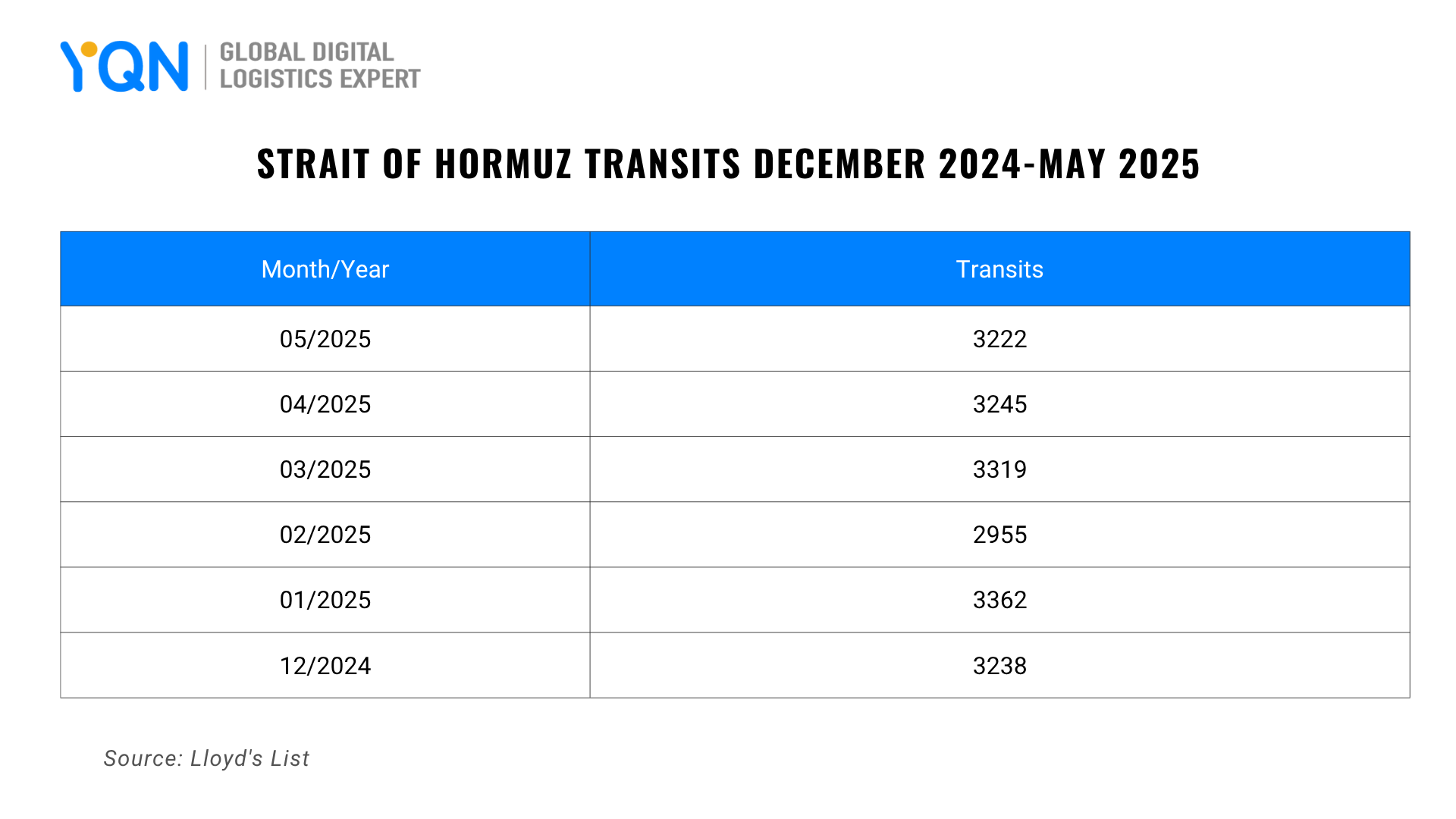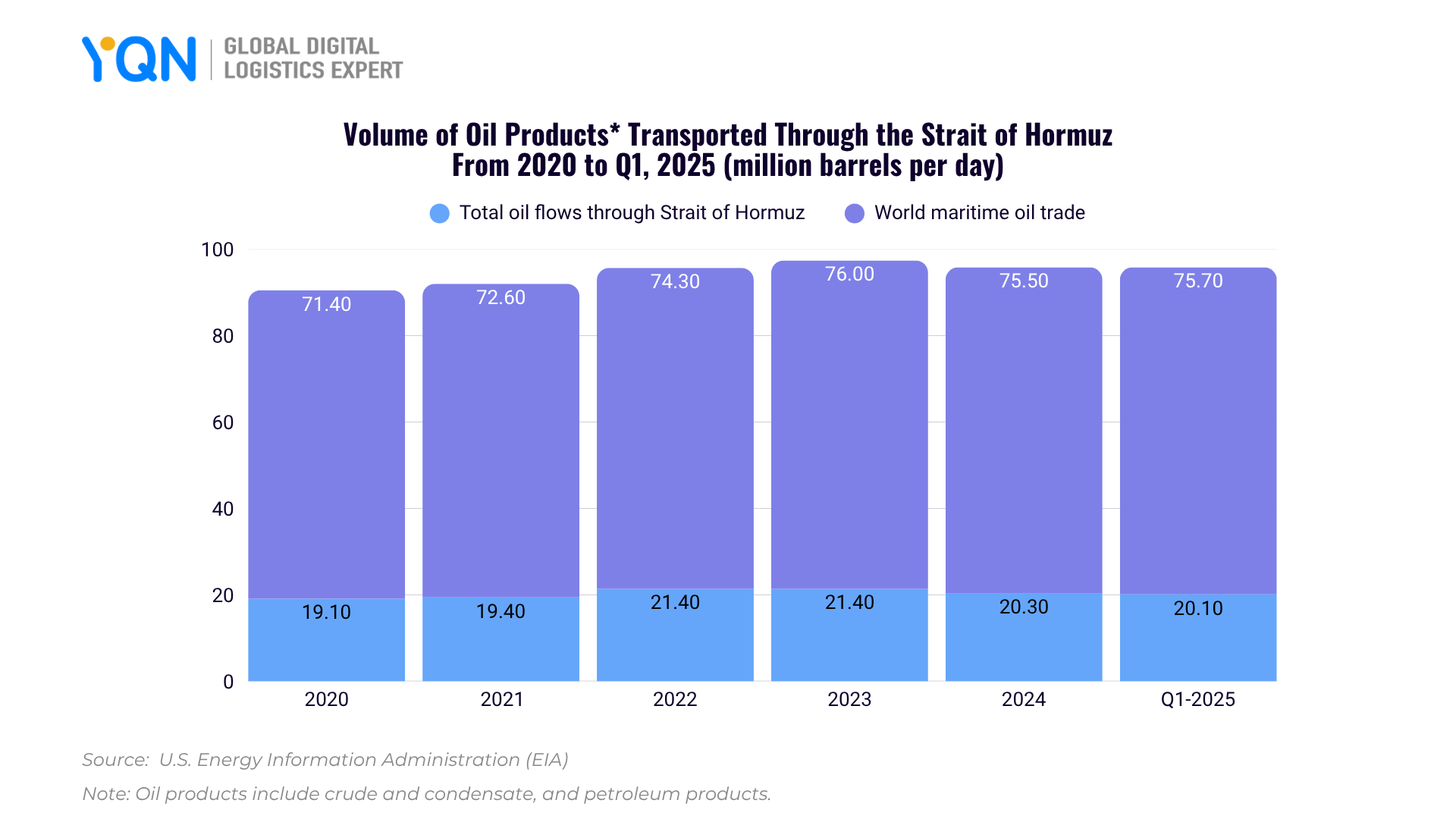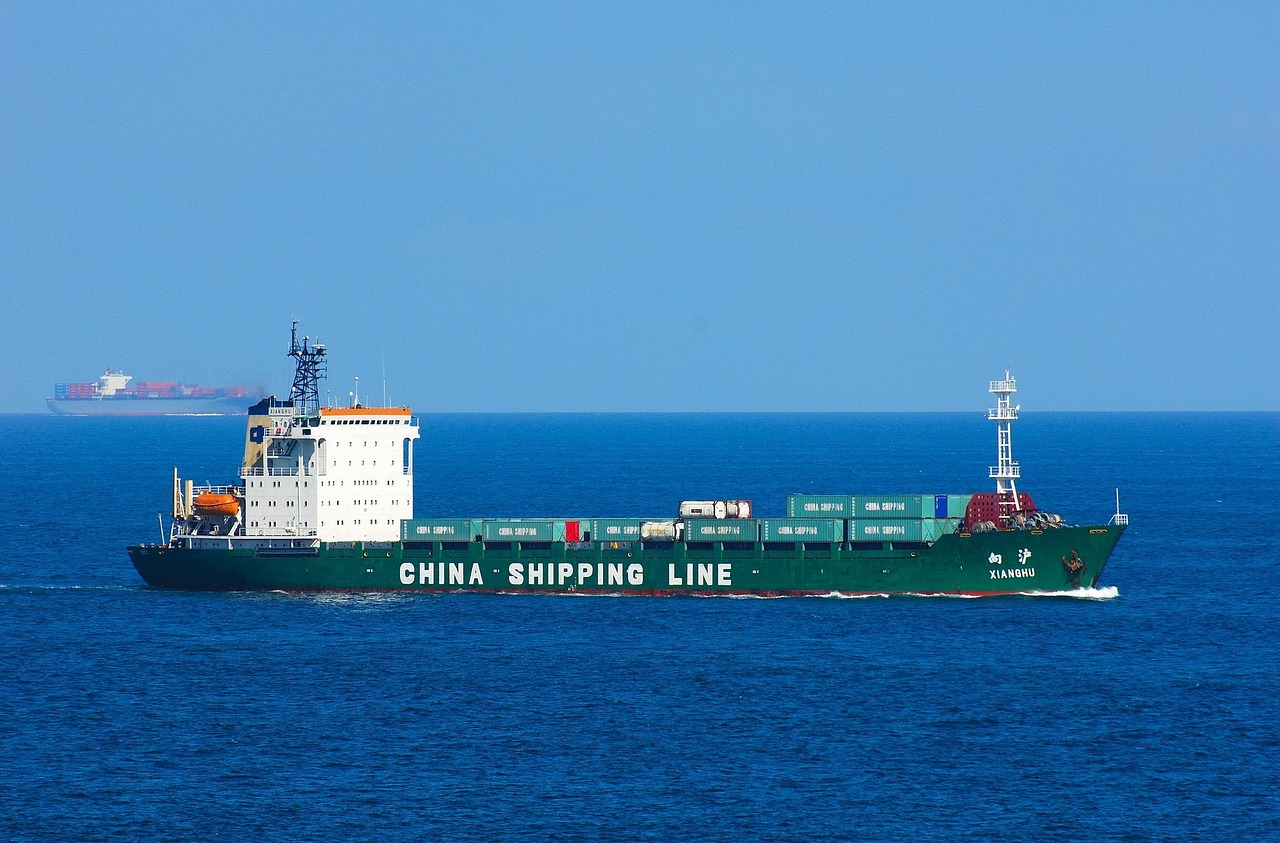Why the Strait of Hormuz Is a Critical Engine of Global Shipping

As global supply chains grow more interdependent, understanding key trade routes becomes essential. One of the most strategically important shipping corridors in the world is the Strait of Hormuz—a narrow waterway that plays an outsized role in global oil, gas, and maritime logistics.
Recent discussions around potential disruptions have brought renewed attention to this chokepoint. Let’s explore why the Strait of Hormuz matters deeply to the shipping industry and how it impacts global freight operations.
Where Is the Strait of Hormuz?
Located between Iran and Oman, the Strait of Hormuz connects the Persian Gulf to the Gulf of Oman and the Arabian Sea. It serves as the only sea passage for several of the world’s largest oil producers, including Saudi Arabia, the UAE, Kuwait, Qatar, and Iraq.
Despite being just 21 miles wide at its narrowest point, the strait is one of the busiest energy corridors on Earth. Over the past six months, an average of more than 3,223 vessels have transited the Strait of Hormuz each month.

Why It’s Logistically Important
The numbers tell the story.
As of 2024, each day, approximately 114 to 122 vessels transit the route, from massive oil tankers to container ships.
Around 20 million barrels of oil per day, roughly 20% of global consumption, move through the strait. This volume includes massive shipments from Qatar, the world’s second-largest LNG exporter, which alone shipped over 80 million tonnes of LNG in 2023—almost entirely via Hormuz.
The United Arab Emirates also relies on this route for LNG exports. Any disruption in the strait could significantly impact global energy availability, LNG spot prices, and downstream freight costs.
In short, the Strait of Hormuz a vital artery not only for energy markets but also for the broader maritime trade network.

Implications for Freight and Supply Chains
If access to the Strait of Hormuz becomes restricted, the ripple effects would be immediate and global.
One of the first impacts would be seen in oil and gas prices. Even minor tension or supply risk can cause significant spikes. Some analysts forecast that a sustained closure could push Brent crude (the most traded of all of the oil benchmarks) past $110–130 per barrel, driving up inflation and raising shipping costs across multiple sectors.
In parallel, freight costs would likely rise. Tanker charter rates are already climbing, with LNG spot rates reaching $51,750/day in the Atlantic and $36,750/day in the Pacific, marking eight-month highs. Higher fuel prices also feed directly into bunker surcharges, affecting container and bulk freight rates globally.
Can Shipping Reroute Around the Strait?
In theory, yes — but with major limitations.
To reduce reliance on the Strait of Hormuz, Saudi Arabia and the United Arab Emirates have developed overland pipeline networks. Saudi’s East–West Pipeline (Petroline) has a capacity of approximately 5 million barrels per day (bpd), while the UAE’s Habshan–Fujairah pipeline can move up to 1.5 million bpd. Combined, these two routes offer around 6.5 million bpd of bypass capacity.
However, this is significantly less than the 21 million bpd of oil that typically transits through the strait. In other words, less than one-third of the volume could be redirected, even under ideal conditions.
For general cargo, detouring around the Cape of Good Hope instead of transiting via Hormuz adds roughly 10 to 14 days of sailing time. Modeling shows such diversions could increase freight costs by over 150%, especially when vessel availability is tight or fuel prices are high. These longer routes also face capacity and schedule constraints, particularly during peak shipping seasons.
Therefore, while contingency options exist, no current infrastructure can fully replace the Strait of Hormuz, reinforcing its role as one of the most critical chokepoints in global logistics and energy trade.
What Logistics Professionals Should Keep in Mind
While global trade has weathered many disruptions, the Strait of Hormuz remains a uniquely concentrated chokepoint. Even businesses that don’t ship to or from the Middle East can be affected through fuel cost volatility, vessel reassignments, or rising insurance premiums.
To stay resilient, logistics teams should:
Monitor fuel price trends and review fuel-adjusted pricing clauses in transport contracts.
Identify alternative routes and transit strategies, even for backup planning.
Consider buffer inventory for time-sensitive goods.
Work with freight partners who provide flexible routing and real-time updates.
Final Thoughts
The Strait of Hormuz may be narrow in geography, but its impact on global shipping is massive. As one of the world's most heavily trafficked maritime corridors, any potential disruption demands attention from supply chain professionals—not just energy traders.
By understanding how chokepoints like Hormuz influence costs, schedules, and risk exposure, businesses can better prepare for uncertainty and keep goods moving, no matter the market climate.
YQN provides flexible logistics solutions tailored to your needs, plus free tools like real-time cargo tracking to keep you informed every step of the way. Contact us today at info@yqn.com to customize your shipping strategy and streamline your supply chain.

Shipping with YQN - Global Logistics at Your Fingertips
YQN has established subsidiaries worldwide, covering North America, Latin America, Southeast Asia, and the Middle East. We have partnered with 300+ top shipping and airline companies and have access to 3500+ high-quality supplier resources. YQN also has a professional customer service and fulfillment team of over 500 people to provide more worry-free and efficient international logistics services.
Contact Us
You can also email us at info@yqn.com.

